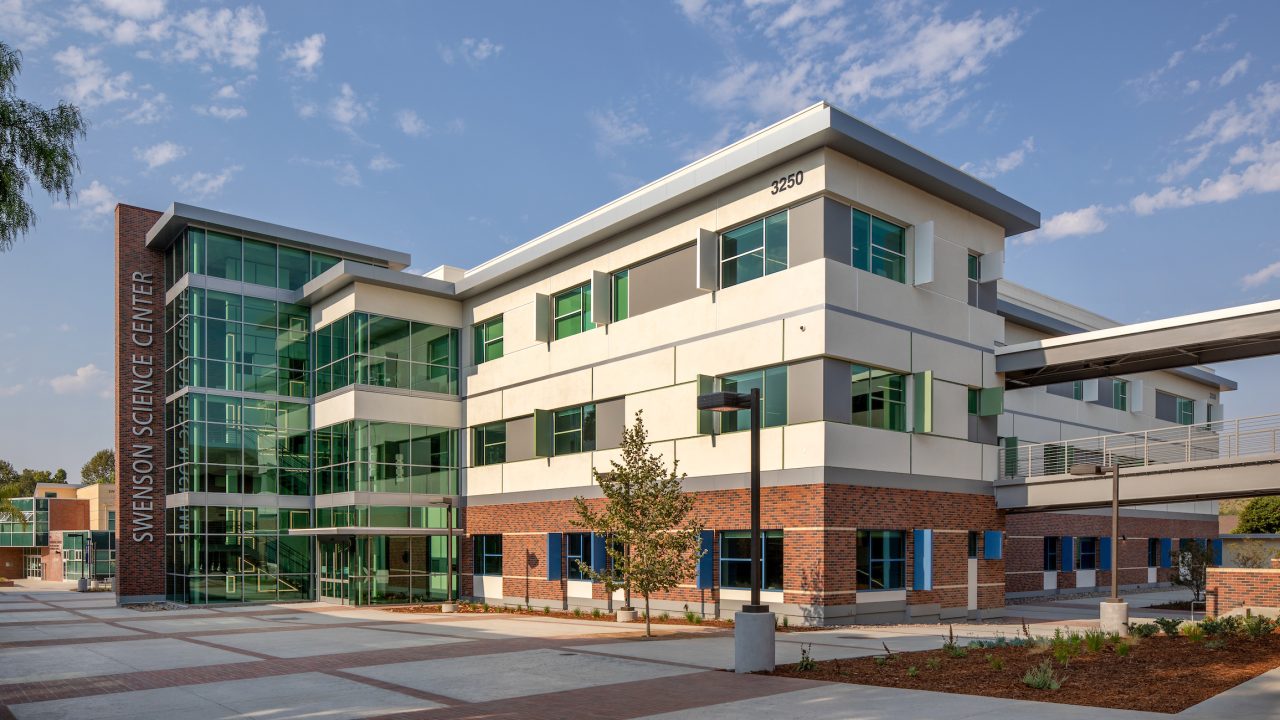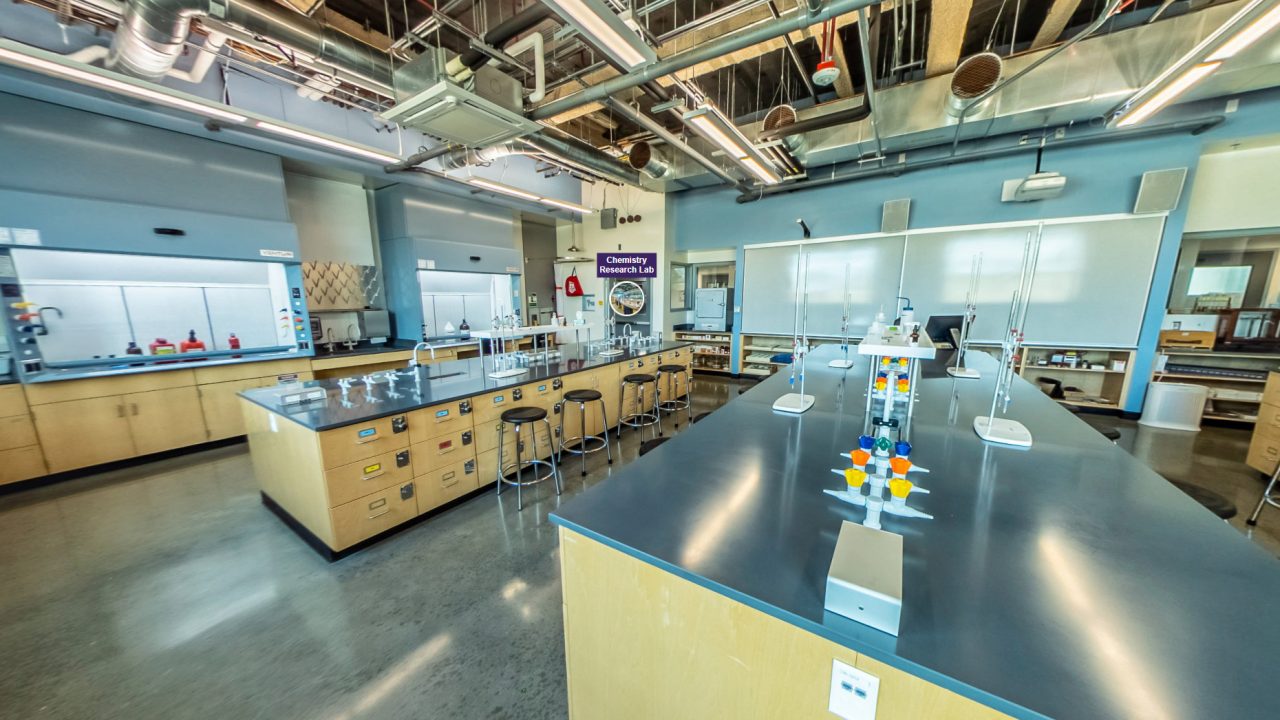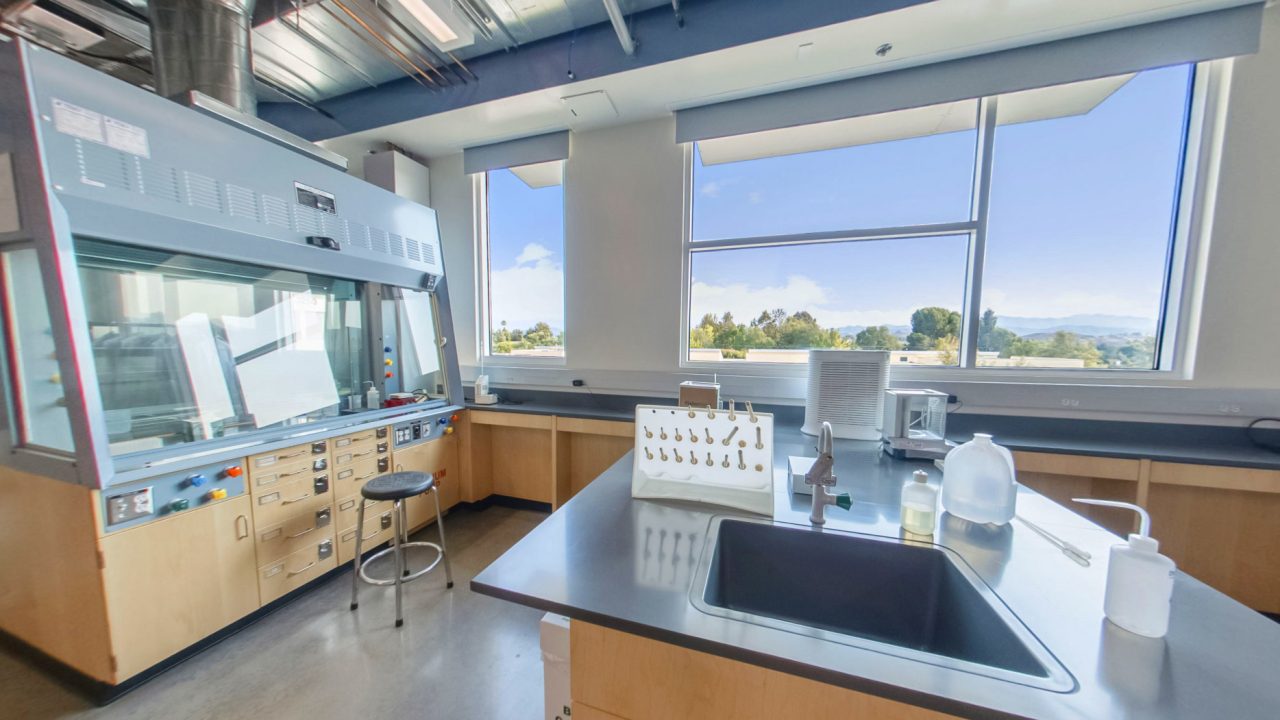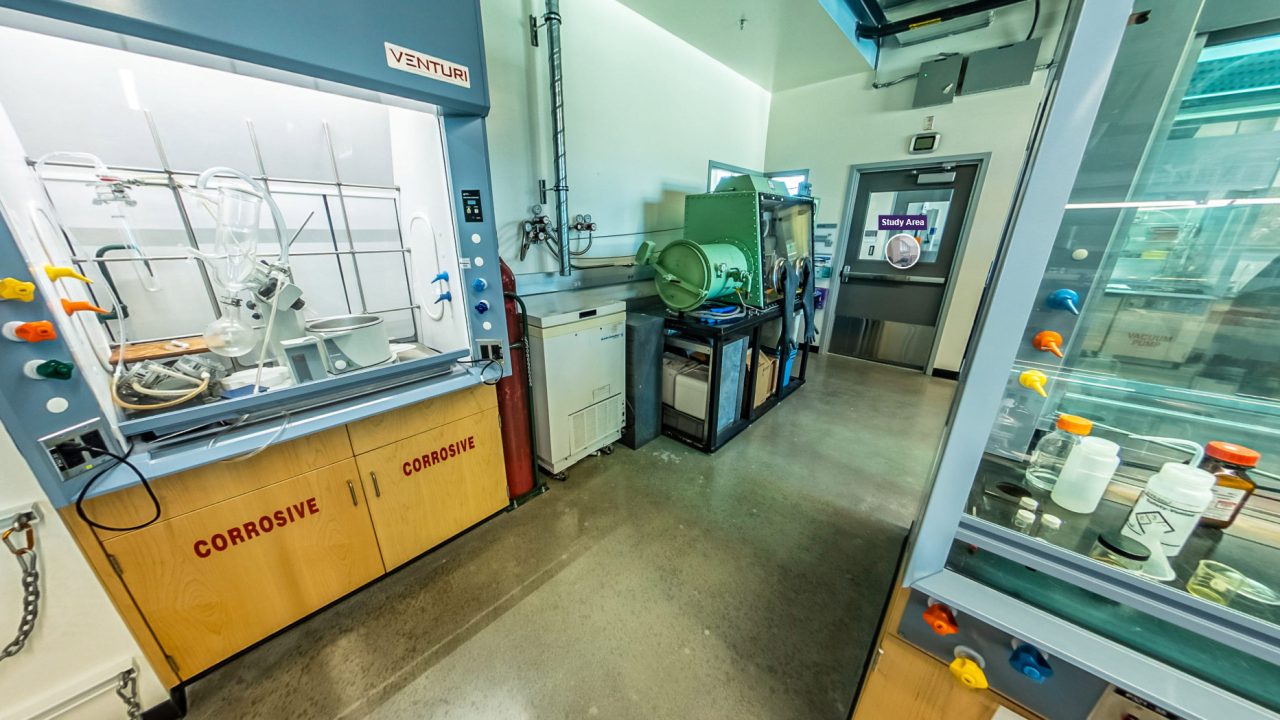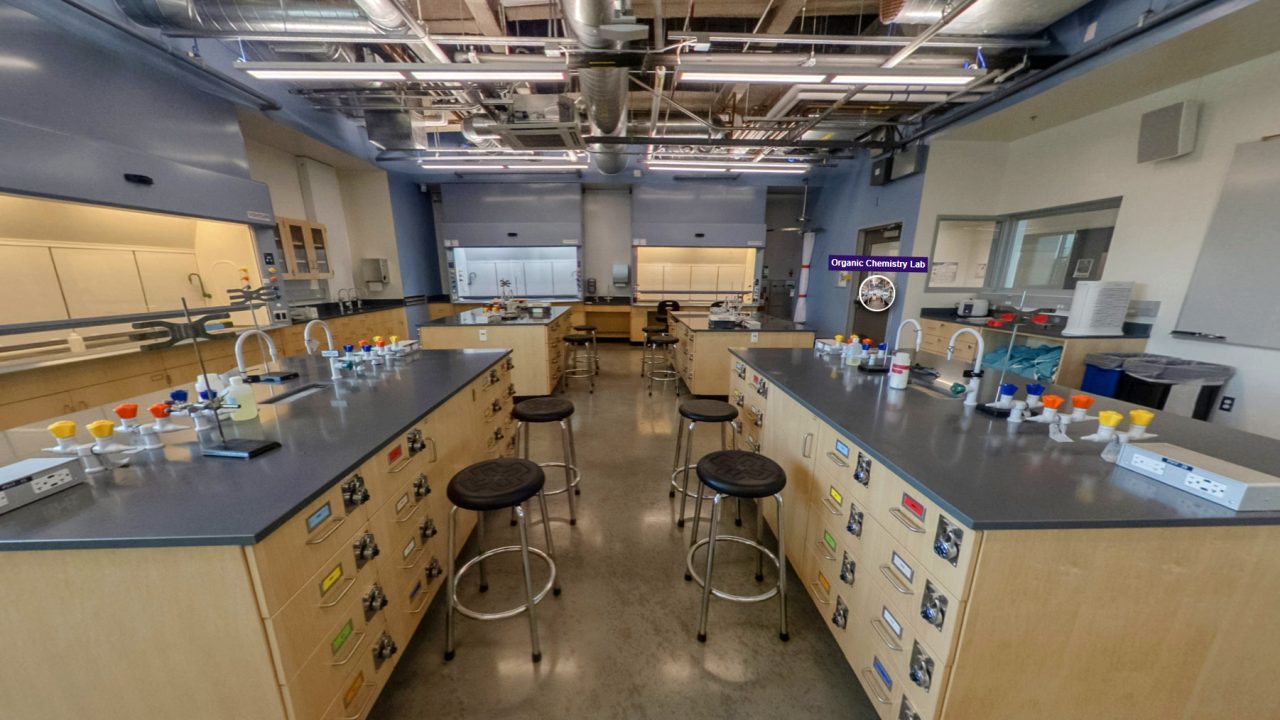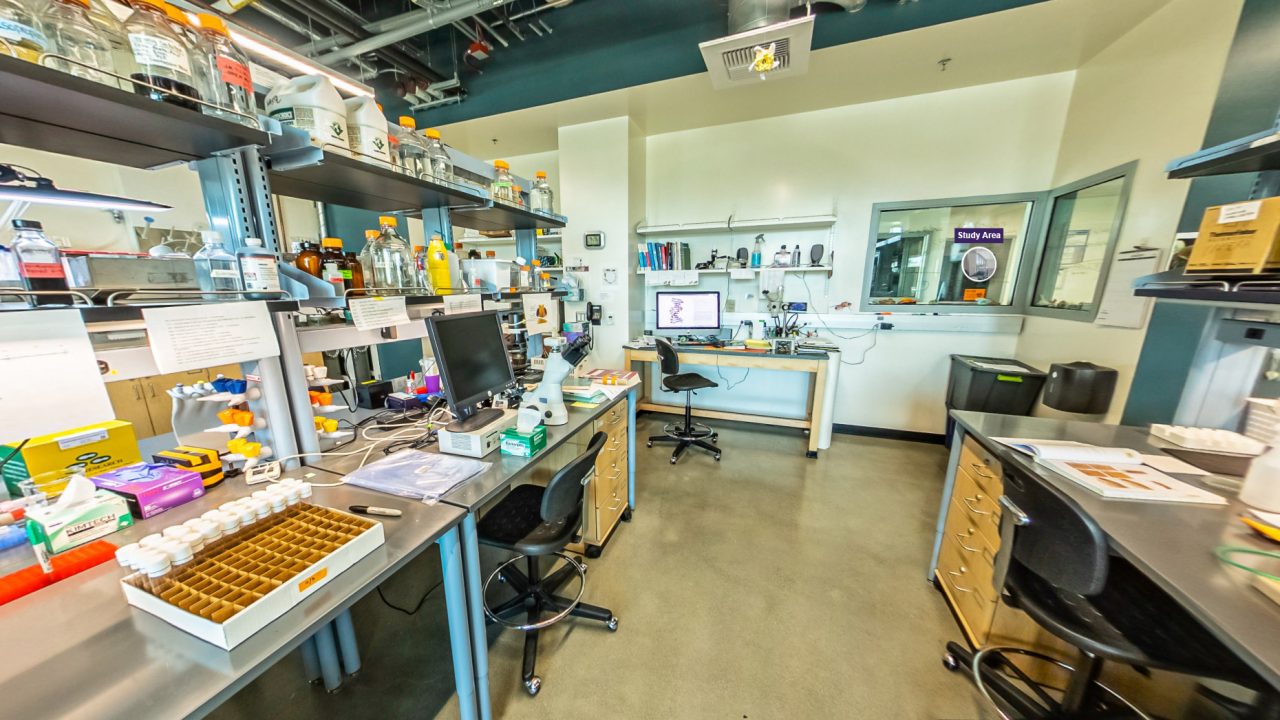Environmental Science
Environmental science is the application of scientific information in order to solve conflicts resulting from human use of our planet’s resources.
Through this interdisciplinary program, you’ll gain an understanding of the sustainability of natural systems and resources, the interrelationships between these systems and the human impact on the environment.
Develop an integrated approach
Environmental science is an inherently interdisciplinary field, drawing information from disciplines including biology, chemistry, geology, economics, political science, law and ethics. Our degree in environmental science is designed to provide you with the tools to critically examine environmental issues from a variety of perspectives.
Create your personal schedule
Beyond the required foundational science courses, the program provides a broad range of science and humanities courses to select from, allowing you to tailor the program to your interests. The curriculum emphasizes experiential learning, which provides you with opportunities to actively engage in research.
Here are just a few of the subjects you can choose to study within your areas of interest:
- Marine Biology
- Environmental Chemistry
- Climate Change
- Conservation Biology
- Historical Ecology
- Field Studies in Water Resources
- Geophysics
- Environmental Ethics
- Economics of the Environment
- Environmental Law and Policy
At a Glance
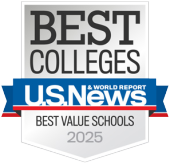
Degree Type
Bachelor of Science
Department
Earth and Environmental Sciences Department
School/College
College of Arts and Sciences
Next Steps
Interested in this major? Here's what you can do next:
With challenging and relevant courses, outstanding faculty, small class sizes, and an emphasis on hands-on learning, the environmental science program will position you to succeed in your chosen career.
Degree requirements
Find out what it takes to earn a degree in environmental science and explore the courses.
Highlighted Courses
Get familiar with some of the courses you might take in this major.
EES 152: Introduction to Environmental Science
An examination of the relationship between people and the physical environment. Topics include geologic hazards such as volcanoes and earthquakes; pollution of land, air and water; park conservation; energy alternatives; and global challenges such as ozone depletion and human-induced climate change.
Read descriptionBUS 330: Fundaments of Sustainable Business
The course provides comprehensive introduction to the sustainability concept and its major themes such as renewable resources, clean energy and fuel organizations and other stakeholders in building the organization's business model and strategies for a sustainable future is examined.
Read descriptionPOLS 414: Environmental Law and Policy
A study of the regulatory environment in California and the U.S. as it applies to environmental issues, problems and the environmental industry. Includes a critical analysis of environmental challenges and the possible legal and political responses to them.
Read descriptionBIOL 352: Oceanography
An introduction to the multidisciplinary nature of oceanography, including the origin and geography of the ocean basins, physical and chemical properties of sea water, the shaping of coastlines, oceanic and atmospheric circulation patterns and ecological relationships of marine organisms and the ocean environment.
Read descriptionEES 305: Climate Change
This course investigates how contemporary/anthropogenic climate change compares to climate variations over Earth's long history, including our scientific understanding of its causes and its local and global impacts. An overview of the physical components of Earth's climate system is discussed. The course includes both lecture and laboratory experiences.
Read descriptionEES 485: Environmental Science Capstone
This course introduces students to the professional skills and practices required in the environmental field. Includes introduction to GIS (Geographic Information Systems), literature searches, written and oral presentation of work.
Read descriptionView all courses in Earth and Environmental Sciences
Recommended Minors
Want to add even more value to your degree? Consider one of these minors to gain a unique combination of skills and perspectives.
- Biology
- Economics
- Geosciences
- Political Science
- Public Health
- Data Science
- Mathematics
- Chemistry
- Business Administration
Check out the spaces and tools you'll have access to in this major. Explore the entire Cal Lutheran campus with our virtual tour
We offer hands-on opportunities that give you the freedom to explore your passion through real-world work and prepare for a fulfilling career.
-
Learning in Action
We emphasize “doing” science and an active approach to learning. Throughout your classes, you’ll gain a lot of research experience by working side-by-side with your professors in state-of-the-art facilities. You’ll design experiments, collect scientific data, perform statistical analysis and share your conclusions through research papers and presentations.
-
Conference Presentations
Many of our students have the opportunity to perform independent research with faculty advisors on campus and present their findings at research consortiums, such as our annual Festival of Scholars or off-campus conferences.
-
Research Opportunities
We offer numerous hands-on research experiences, including summer research fellowships. Students have also garnered recognition through California Heart Association grants, National Institutes of Health and National Science Foundation summer research posts, and internships at local biotechnology firms such as Amgen and Baxter — among the nation’s top biopharmaceutical corporations.
-
STEM Living-Learning Community
Located in Conejo Hall, this program allows residential students in STEM majors to more frequently interact with peers and faculty members in their discipline, enabling them to easily form study groups. Additionally, STEM-focused programming provided by Residence Life staff and faculty members allows for integrated learning between the classroom and residence hall. Learn more
-
Earth Society
Earth Society creates a community of students who are dedicated to making a difference for our planet. Members dive into environmental issues through hands-on experiences, from beach cleanups, hikes, sustainability projects, outreach, and more. See club details.
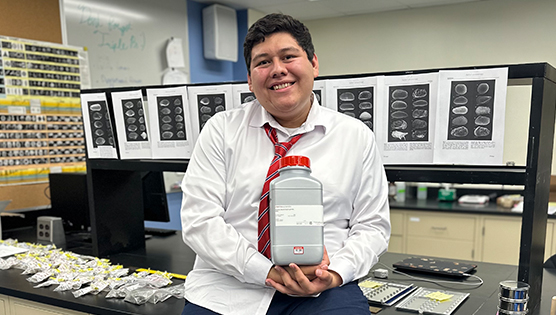
I chose environmental science because it is an interdisciplinary major where there are a plethora of skills you can learn. I wanted to study something highly applicable across many fields in STEM and humanities so I would get the best of both worlds. I love how I can decide if I want to study present issues like climate change or study past climates through research.
Anthony Delgadillo Salas '25
Read their storyMany students who obtain the B.S. degree in environmental science pursue careers in environmental protection and management, risk assessment, education or law. The program also prepares students to pursue graduate studies in various environmental fields.
Potential Careers
Environmental Science Teachers
Teach courses in environmental science. Includes both teachers primarily engaged in teaching and those who do a combination of teaching and research.
Read descriptionForest and Conservation Technicians
Provide technical assistance regarding the conservation of soil, water, forests, or related natural resources. May compile data pertaining to size, content, condition, and other characteristics of forest tracts under the direction of foresters, or train and lead forest workers in forest propagation and fire prevention and suppression. May assist conservation scientists in managing, improving, and protecting rangelands and wildlife habitats.
Read descriptionEnvironmental Scientists and Specialists, Including Health
Conduct research or perform investigation for the purpose of identifying, abating, or eliminating sources of pollutants or hazards that affect either the environment or public health. Using knowledge of various scientific disciplines, may collect, synthesize, study, report, and recommend action based on data derived from measurements or observations of air, food, soil, water, and other sources.
Read descriptionClimate Change Policy Analysts
Research and analyze policy developments related to climate change. Make climate-related recommendations for actions such as legislation, awareness campaigns, or fundraising approaches.
Read descriptionEnvironmental Restoration Planners
Collaborate with field and biology staff to oversee the implementation of restoration projects and to develop new products. Process and synthesize complex scientific data into practical strategies for restoration, monitoring or management.
Read descriptionConservation Scientists
Manage, improve, and protect natural resources to maximize their use without damaging the environment. May conduct soil surveys and develop plans to eliminate soil erosion or to protect rangelands. May instruct farmers, agricultural production managers, or ranchers in best ways to use crop rotation, contour plowing, or terracing to conserve soil and water; in the number and kind of livestock and forage plants best suited to particular ranges; and in range and farm improvements, such as fencing and reservoirs for stock watering.
Read descriptionSustainability Specialists
Address organizational sustainability issues, such as waste stream management, green building practices, and green procurement plans.
Read descriptionCompliance Managers
Plan, direct, or coordinate activities of an organization to ensure compliance with ethical or regulatory standards.
Read descriptionEmployers
Some of the organizations our graduates work for include:
- Alta Environmental
- Andersen Environmental
- Baxter International
- Chevron Environmental Management Company
- City of Thousand Oaks
- Klamath Bird Observatory
- Law Offices of Kempur & Kempur
- Pacific Disaster Center
- Sea World San Diego
- Sierra Club
- U.S. Forest Service
Graduate Schools
Our alumni have pursued advanced degrees at:
- Arizona State University
- California Lutheran University
- California State University, Northridge
- Evergreen State College
- Tufts University
- University of East Anglia
- University of Washington
- Western Washington/Southern Oregon

Through my environmental policy class, I gained an in-depth understanding of California’s cap-and-trade program, which directly connects to my career interests. This experience enabled me to integrate both my personal and academic perspectives into my work.
Vanessa Buenrostro '23
Carbon Policy Analyst, Restore the Delta
This page includes information from O*NET OnLine by the U.S. Department of Labor, Employment and Training Administration (USDOL/ETA). Used under the CC BY 4.0 license. Some occupations listed above may require a related graduate degree.
How We Prepare You for Success
We have 20,000+ employer contacts for jobs and internships, with over 200 listings posted each week.
Our excellent career counselors in the Career Services center will get in touch with you during your very first term on campus. They offer over 50 workshops each year on resume writing, interviewing, salary negotiations, applying to graduate schools, and other critical skills to help you begin your career successfully.
After you graduate from Cal Lutheran, you receive free access to Career Services for life, as a valued member of our alumni family.
of Cal Lutheran graduates find a job or enroll in graduate school within nine months
We work with students and families to make sure everyone who is admitted to Cal Lutheran can afford it.
Tuition & Fees
You and your family might have questions about how you’ll cover the costs of college. We can tell you this — it costs less than you think.
Scholarships & Grants
We offer a range of awards based on academic merit and financial need. This is money that does not need to be repaid.
Net Price Calculator
Take a few minutes to use our calculator and get yourself a personalized estimate of your costs and financial aid.
Let us know and we'll send you information about our academics, campus life, the admission process, and more!
Ready to apply?
We’re now accepting applications for Fall 2026!
Level Up Your College Search
Check out our college success guides to help you navigate the search process.

How to Choose a College Major
Your major will be a significant part of your academic experience. How do you pick the right one?

5 Tips for Applying to College
Learn how to look good when applying to colleges, with personal tips to stand out from Cal Lutheran admission counselors.

How to Afford College
Read this guide to minimize costs as you save for college during high school — learn all about scholarships, financial aid, FAFSA, and more!

5 Key Advantages of a Liberal Arts Education
Are the liberal arts still worth studying in today's world? If you want a future-proof college education — absolutely.

How to Get Recruited for College Athletics
Check out our tips to connect with coaches, navigate campus visits, and move forward with confidence.

Private vs. Public Universities
The differences between each — and how to choose the school with your dream college experience.
